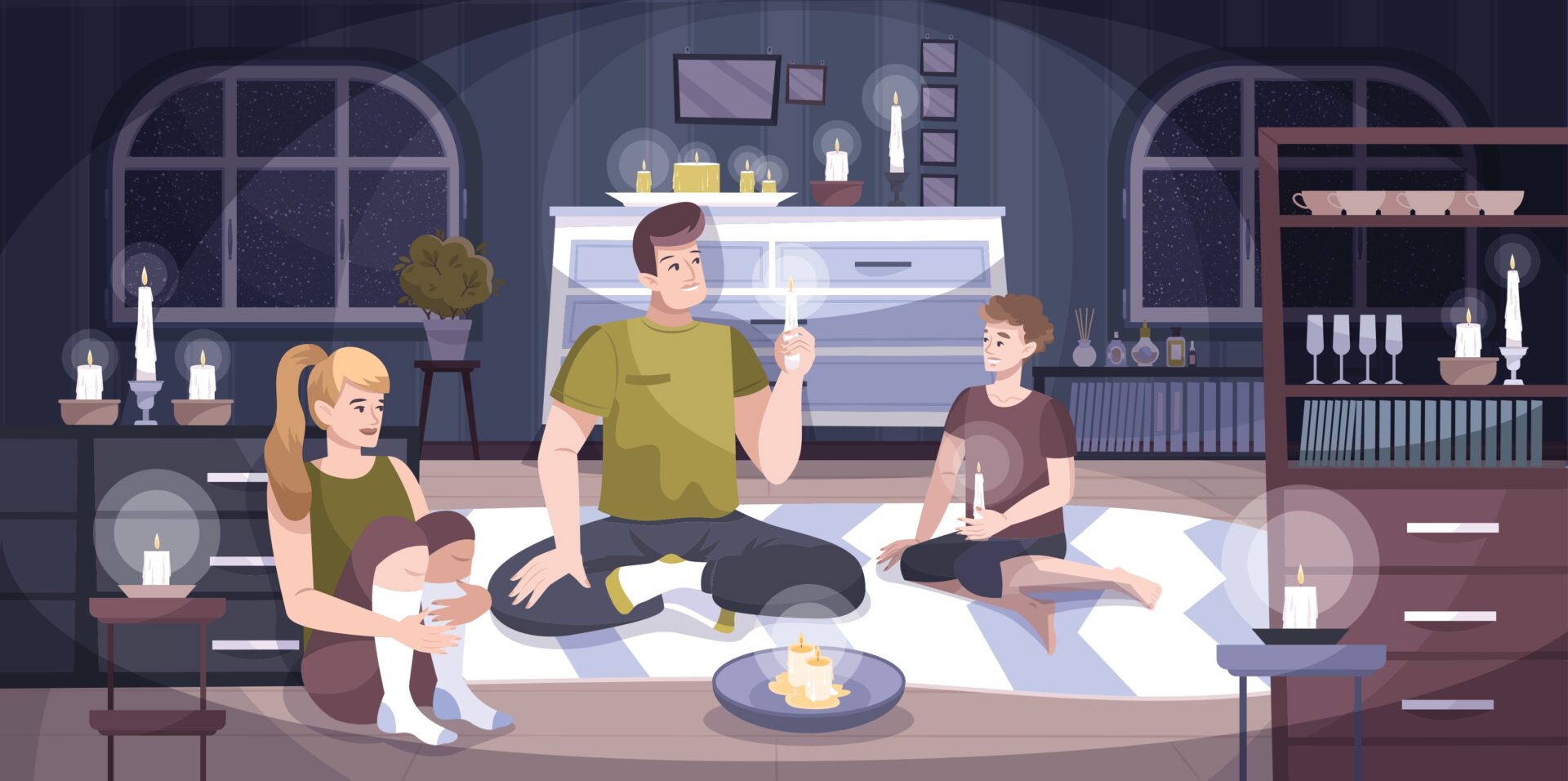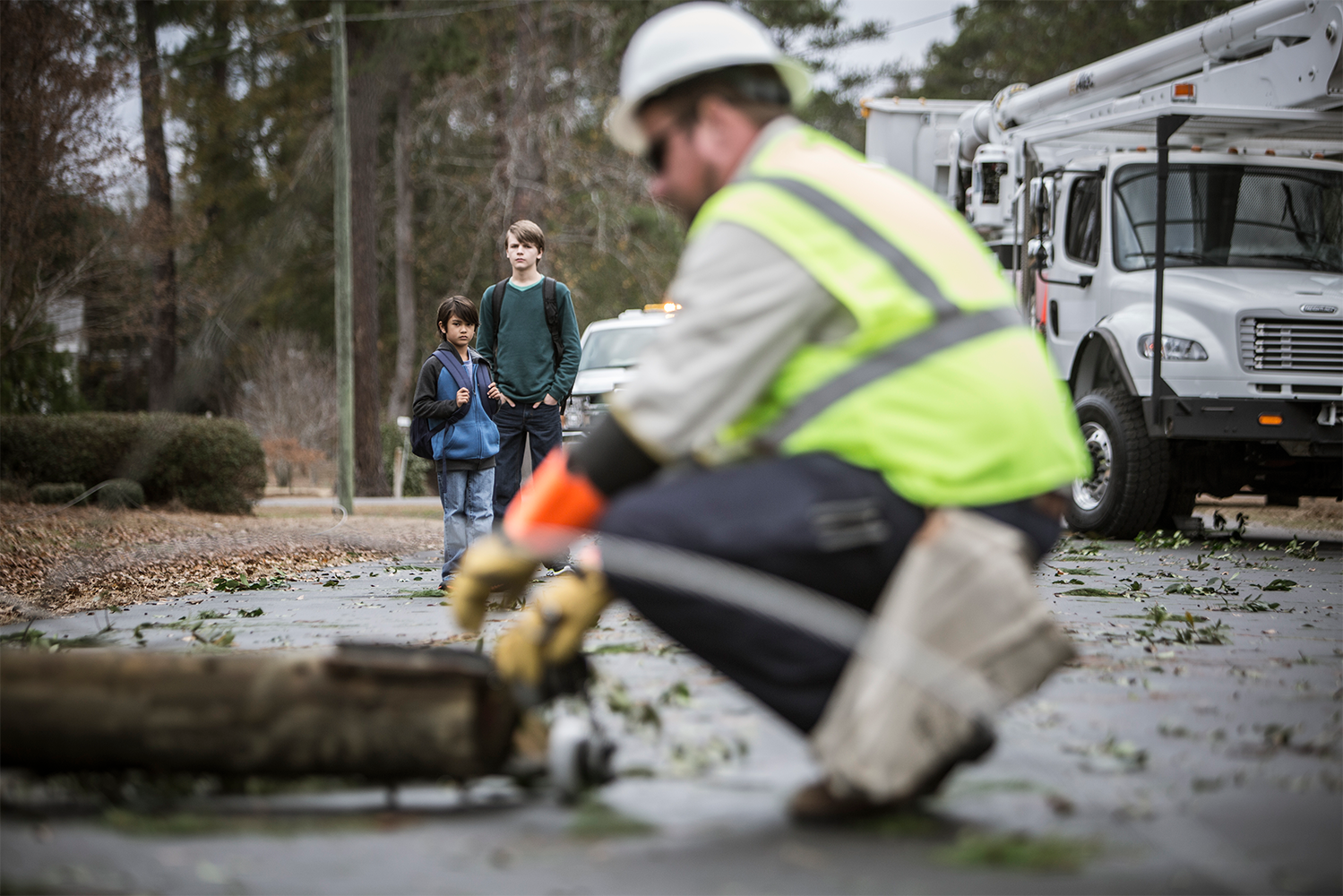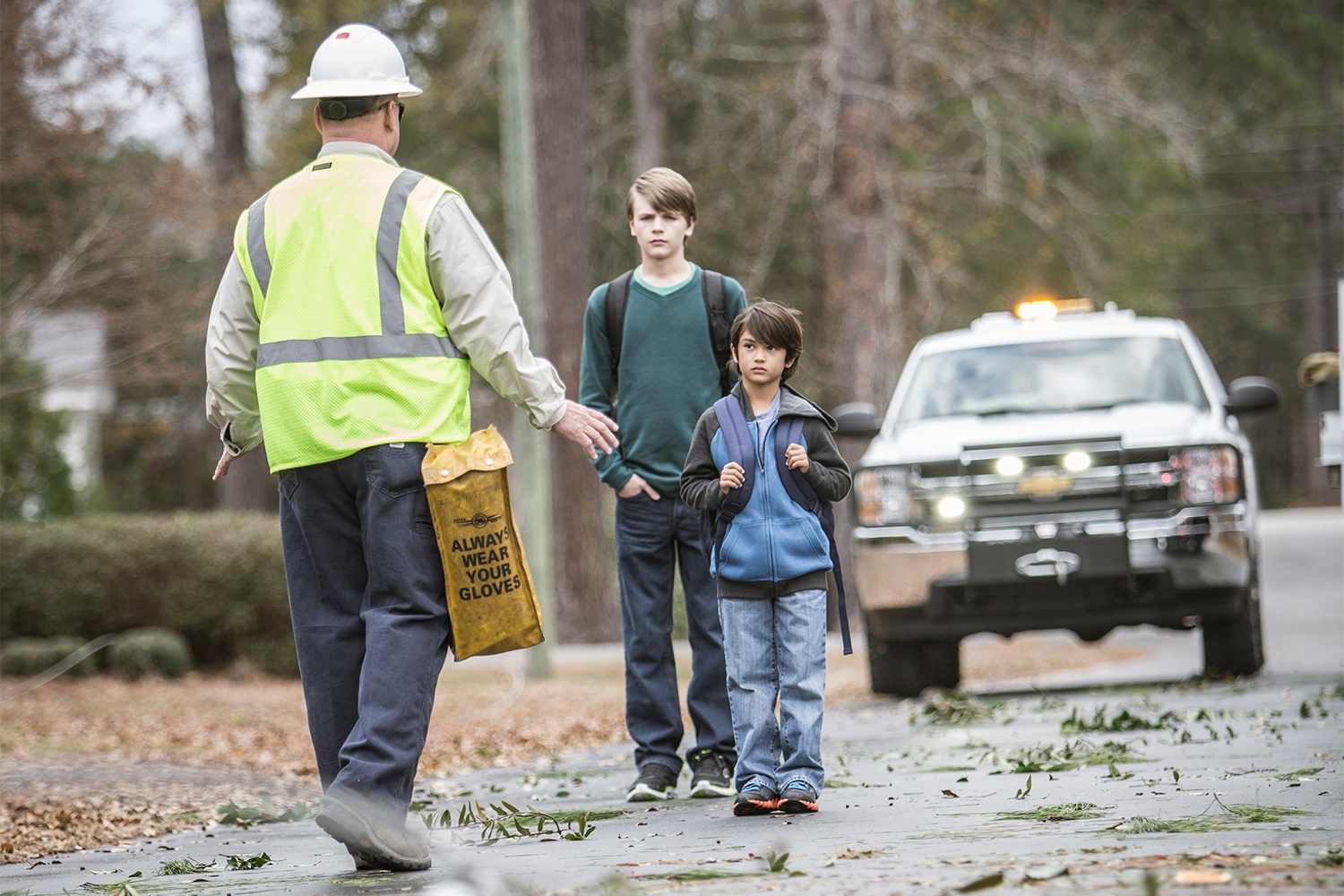Outage Safety and Information

Preparing For a Power Outage
- Make sure to have a disaster preparedness kit ready. Your kit should contain items such as: flashlights, first aid kit, extra batteries, and local maps
- If you own an electric garage door opener, know how to open the door without power
Consider buying a generator. When installing a generator, follow the instructions carefully. Keep your generator outside and run a cord inside. Don't connect your generator to main service panels—it's dangerous! Be sure to place a carbon monoxide detector indoors.
- Make sure your contact information is updated with Benton REA by going onto your SmartHub app or calling 509-786-2913
What To Do During a Power Outage
Turn off lights and electrical appliances except for the refrigerator and freezer.
Unplug computers and other sensitive equipment to protect them from possible surges when the power is restored.
Leave one lamp on so you will know when power is restored. Wait at least 15 minutes after power is restored before turning on other appliances.
Conserve water, especially if you use well water.
Never use gas ovens, gas ranges, barbecues or portable or propane heaters for indoor heating—they use oxygen and create carbon monoxide that can cause suffocation.
Using a kerosene heater, gas lantern or stove inside the house can be dangerous. Maintain proper ventilation at all times to avoid a build up of toxic fumes, and be sure to have a carbon monoxide detector.
Stay away from downed power lines and sagging trees with broken limbs.
- Have no-power entertainment in the form of books and games to keep up your spirits.
Short-Term Power Failures
Don’t panic! Check to see if your neighbors still have electricity. If they do, the problem could be inside your home. Check your main fuses or circuit breakers to see if they have blown or tripped. Replacing a fuse or resetting a circuit breaker may restore your electricity.
If the problem is not in your home, call Benton REA at 509-786-2913. Someone will be dispatched as quickly as possible.
Unplug appliances with electronic components, such as microwaves, televisions and computers. This will help to eliminate damage to your appliances from voltage surges when the electricity is restored. Wait a few minutes before turning on these appliances when the electricity is restored. This will reduce demand on the power supplier’s electrical system.
Keep Food Safe
- Use and store food carefully to prevent foodborne illness when power outages make refrigeration unavailable
- Use foods first that can spoil most rapidly
- Keep doors to refrigerators and freezers closed. Your refrigerator's freezer will keep food frozen for up to a day. A separate fully-loaded freezer will keep food frozen for two days
- Use an ice chest packed with ice or snow to keep food cold. Buy dry ice to save frozen food. Do not handle dry ice with your bare hands. Use blocks or bags of ice to save refrigerator foods
- If in doubt, throw it out. Throw out meat, seafood, dairy products and cooked food that does not feel cold
Generator Use During a Power Outage
- DON'T OVERLOAD YOUR GENERATOR
- Determine the amount of power you will need to operate those things you plan to connect to the generator.
- Light bulb wattage indicates the power needed for lighting.
- Appliance and equipment labels indicate their power requirements.
- Determine the amount of power you will need to operate those things you plan to connect to the generator.
- If you can't determine the amount of power you will need, ask an electrician.
- Make sure your generator produces more power than will be drawn by the things you connect to the generator, including the initial surge when it is turned on. If your generator does not produce enough power to operate everything at once, stagger the use of your equipment.
- If your equipment draws more power than the generator can produce, you may blow a fuse on the generator or damage the connected equipment.
- Incorrect generator use can lead to carbon monoxide (CO) poisoning from the toxic engine exhaust, electric shock or electrocution and fire. Follow the directions supplied with the generator.
- NEVER USE A PORTABLE GENERATOR INDOORS! Never use a portable generator in a garage, carport, basement, crawl space or other enclosed or partially-enclosed area, even with ventilation. Opening doors and windows or using fans will not prevent CO buildup in the home.
What Causes a Power Outage?
Benton REA is recognized nationally for its reliable service. Despite Benton REA’s meticulous work to keep the power on, occasional outages do occur. Snow and ice, high winds, floods, fires, lightning, car accidents and animals can damage power lines and cause unpredictable outages.
Learn more about what causes power outages by watching this video.
Outage Restoration Plan
To effectively restore service under extreme conditions, Benton REA follows an emergency response plan. This plan helps identify how to best utilize Benton REA’s existing labor force, as well as when to call for additional labor or material resources. The plan also specifies the order of priority in which electrical service will be restored.
In general, our emergency response plan will restore power to the most number of people in the least amount of time, while putting the safety of our employees and members as our first priority.
We want to express our appreciation to all the members of Benton REA for their patience during difficult times and to thank all of the employees for their tremendous effort during inclement conditions. To help you understand the power restoration process, and why it may take longer than expected to restore your electricity, look at the "How Power is Restored" infographic to learn more.



